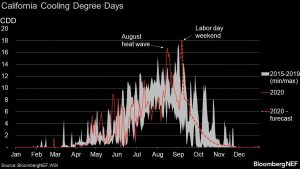It started off innocently sufficient: “What Disney princess are you?” “What Pokémon are you?” Then issues obtained a limited bit more cerebral. “What’s your most titillating quality?” “What ought to aloof your Recent one year resolution be?” Then it obtained darkish: “What’s your crippling terror?” And then it true obtained exclusive: “What form of gap are you?”
The premise is easy. Load up the filter, watch dreary-eyed into the camera lens and reduction down the role off button and wait with bated breath to look at what roughly no matter you are. Your reaction is recorded, and also it is doubtless you’ll well moreover purchase to part your result together with your followers in advise so that you simply can (and all people desires to). You have gotten moreover obtained the choice to strive or keep an form, however most folk seem recount material using them true the as soon as. Or now now not it is normally a more instantaneous, shinier grab on the ol’ random Buzzfeed quiz, created at a grassroots level by Instagram-using artists and programmers.
And “random” is the essential phrase here, on fable of despite the filter giving the semblance of advanced number-crunching — a light beam scanning your face, shall we protest — the outcomes are normally completely arbitrary. As @DarkArtsPhoto — maker of the “What’s your crippling terror?” filter — tells me, the majority of creators spend a randomize feature on their AR machine (the Fb-made Spark is a well-liked selection). “In straightforward phrases, this machine instructs the camera to gawk at your face, gleans info about the form and station of your face after which simply slaps the form to your face with one among the predetermined final result solutions,” @DarkArtsPhoto says. “I’ve now not considered anything describing a formula to form essentially the most of camera or atmosphere to persuade a bunch.”
That is now to now not deliver a wiser roughly filter is now not for all time actually feasible, however it indubitably would seemingly require a heap more work than their random counterparts. In accordance to the creators I spoke to, these filters can grab most efficient a pair of hours (if that) to position together, and the pay-off is somewhat significant. Filippo Soccini — the maker within the lend a hand of the well-liked “In 2020 I will seemingly be…” filter — says his creation has been considered two billion times because it launched and has been dilapidated 330 million times.
Meanwhile, Christopher Gu‘s portfolio of filters — which differ from “By no methodology Bear I Ever” to “Which dog breed r u?” — has picked up well over 100 million impressions, including 60 million in their first seven days on the platform. For the length of that length, then, Gu’s filters have been being dilapidated 100 times per 2d through the arena.
Some brands have found a strategy to spend these filters to their marketing revenue. UK chicken chain Nando’s, shall we protest, attempted a “What Nando’s spice level are you?” filter, which appears to be barely uninspired within the face of indie offerings treasure “What mythical cryptid are you?” For grassroots creators, although, the pay-off is available within the form of big publicity, more followers and a heat glow that they’re helping folks through the arena kill time in a extraordinarily atmosphere pleasant manner — and that is the reason largely down to the queer methodology Instagram made these filters usable.
There might be now not any central database from which to opt and purchase these explicit filters — you either find them by technique of someone else’s legend or on the profile of its creator within the event you apply them. Their reputation depends completely on them spreading thru Memoir feeds, so it is doubtless you’ll well moreover have to actively rob with the platform to spend them. The possibilities are, if it is doubtless you’ll well moreover have dilapidated a explicit one, you will rapidly watch your friends following suit, and that particular particular person filter will then unfold into totally different social circles. Creators that have a bigger social circle have a higher chance of their filter spreading some distance and wide, main to customers coming lend a hand to their profile out of curiosity. For Gu, this offers doable post-faculty recruiters a thought of his entrepreneurial, ingenious chutzpah. For others, such as @TheDarkArtsPhoto, it is miles a stress-free tie-in with the fable’s current recount material and services and products.
Here’s moreover why many of these filters have managed to shirk any elements of copyright. Whereas there are a range of clauses linked to the spend of copyrighted field material on both Spark and Instagram, filters asking “What McDonald’s greenback menu merchandise are you?” is nothing however free marketing for the corporate, so creators muddying the waters here have to this point flown under the radar. Though as @DarkArtsPhoto says, “If folks birth making money off filters, I wager some lawyers will sever their ears up rapidly sufficient.”
But to the matter at hand. These filters must now not have considered such meteoric reputation nor regarded in their droves, have been it now now not for his or her substantial charm. Something about their whole MO sparked pastime in even essentially the most apathetic Instagram filter user. Even I — a ham-fisted elder Millennial who feels a limited bit queasy about selfies and has most efficient actually true gotten to grips with Memoir GIFs — became extraordinarily here for them. Quiz me what form of anything I’m. Dash on. I wager I will advise you.
There are, obviously, no stop of reports illustrating the feel-gorgeous fix that social media presents. Posting an image of your sparkling visage on-line can sigh about hundreds dopamine-dosing feels. However the charm of these particular forms of filters goes a limited bit deeper aloof, per neuroscientist and creator of The Fool Mind, Dr Dean Burnett. (Disclaimer: He and I speed a neuroscience-essentially based completely podcast together called Mind Yapping). In accordance to him, a huge section of it comes down to the randomization of all of it.
“Persons are an especially social species by default, so the chance to part one thing together with your community is tempting already,” he says. “But there is moreover a fixed human power to quantify ourselves — we form it the total time, with every little thing.” Burnett substances to issues treasure our weight, our height, age, salary and follower rely as examples of issues we spend to define ourselves. “This roughly quantifiable recordsdata offers us easy task and feeds into our self-image.”
But does luminous what dog-wearing-shades you are actually rely as quantifiable recordsdata? Critically when the final result is totally random? “The very fact that it is all random nonsense is beside the purpose,” he says. “Or now now not it is aloof gratifying to know what form of thing you are. And it is actually advantageous to the ‘sharing with the community’ dynamic — there will not be any risk eager. For folks that secure a complimentary result, huge. For folks that secure an insulting one, it is doubtless you’ll well moreover act very a lot surprised and appalled in an a laugh and partaking methodology, and no person can purchase you on fable of it is all meaningless.”
Possibility — or barely, the dearth of it — is de facto a remarkable bigger design to those filters than shall we realise, says Burnett, particularly compared to the frequent selfie, for which Instagram is so well acknowledged. Selfie disgrace, sadly, is a extraordinarily real phenomenon. Of us — normally women folks — are fearful to part photos of themselves for exertion of performing vain or arrogant, and there might be the chance that they put themselves accessible in what they deem is a pleasing picture, most efficient to find deafening silence in return — or worse, criticism.
These Instagram filters bypass all of that, says Burnett. “You are now now not announcing, ‘Hiya gawk how nice my face looks.’ You are announcing, ‘Scrutinize what this machine thinks my face methodology,’ and it is laborious to grab exception to that. A filter that took a discovering out of your knee or elbow presumably wouldn’t be as a success, so it is miles a visible humblebrag, of kinds, and there will not be any risk of rejection.”
But these are now now not motivating elements for the filters’ creators. When asked what they factor within the charm of them is, solutions normally included issues treasure, “they’re humorous,” or “they’re relatable.” Or essentially the most typical response amongst these I spoke with: “They’re a honest real methodology to kill time.”
This quiz filter frenzy does appear to be death down now — replaced as an different with parodies and memes of the total episode. But I will’t guarantee I would perchance well moreover now now not tap on another one if it orbits into my social sphere, putting it in front of different filter followers and inflicting the total cycle to kick off again. What roughly insufferable Instagram pattern am I? I already know the resolution to that one.
In this article:
art work, creators, developers, leisure, filter, Instagram, cell, psychology, selfie, services and products, Reports, viral, What Am I
All merchandise urged by Engadget are selected by our editorial team, honest of our guardian company. A pair of of our reports embody affiliate hyperlinks. For folks that purchase one thing thru one among these hyperlinks, we would perchance well moreover develop an affiliate price.

Comments
P&T, consultation, engagement, property development, planning permission, council permission, planning law, planning application, public consultation, public engagement,obsessed,Instagram’s



